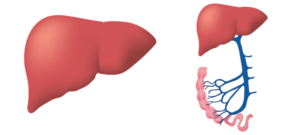
Three Causes of Gum Disease
Are you experiencing bleeding gums, bad breath, or loose teeth? These could be the signs of gum disease. Gum disease affects millions worldwide and can lead to serious dental health issues if left untreated. Understanding the causes of gum disease is crucial in preventing it from happening. If you feel that you have gum disease, consider visiting the dentist Bristol. In this blog post, we will discuss three common causes of gum disease – plaque, gingivitis, and periodontitis. By being aware of these potential culprits, you can take proactive steps towards maintaining healthy gums and a beautiful smile.
Plaque
 Plaque is a sticky, colorless film of bacteria that forms on your teeth and gums. It’s the leading cause of gum disease because it can irritate and inflame the gum tissue. Plaque buildup also leads to tooth decay, eventually resulting in tooth loss. The bacteria in plaque produce acids that attack the enamel of your teeth, weakening it over time. If not removed regularly through brushing and flossing, plaque hardens into tartar or calculus. This makes it even harder to remove with regular oral hygiene practices. To prevent plaque buildup and maintain healthy gums, brushing twice daily for at least two minutes each time with fluoride toothpaste is important.
Plaque is a sticky, colorless film of bacteria that forms on your teeth and gums. It’s the leading cause of gum disease because it can irritate and inflame the gum tissue. Plaque buildup also leads to tooth decay, eventually resulting in tooth loss. The bacteria in plaque produce acids that attack the enamel of your teeth, weakening it over time. If not removed regularly through brushing and flossing, plaque hardens into tartar or calculus. This makes it even harder to remove with regular oral hygiene practices. To prevent plaque buildup and maintain healthy gums, brushing twice daily for at least two minutes each time with fluoride toothpaste is important.
Gingivitis
Gingivitis is the early stage of gum disease that results in inflammation and bleeding gums. This condition is caused by plaque buildup, which contains bacteria that release toxins irritating the gums. The symptoms of gingivitis include tender, swollen or red gums, bad breath, and bleeding when brushing or flossing. Addressing these symptoms as soon as possible is important to prevent further damage to your oral health. To treat gingivitis, it’s necessary to remove plaque through regular brushing and flossing. A professional dental cleaning can also be beneficial in removing stubborn tartar buildup.
Periodontitis

Periodontitis is a serious gum disease that can damage the soft tissue and bone supporting teeth. It happens when untreated gingivitis advances to affect the surrounding tissues. The symptoms of periodontitis include red, swollen gums, bleeding while brushing or flossing, bad breath, receding gums resulting in loose teeth and changes in the way your teeth fit together when you bite down. Periodontitis occurs when bacteria build up along and under the gum line, causing inflammation, ultimately leading to tooth loss if left untreated. Medical conditions like diabetes may make individuals more susceptible to developing periodontal disease. Treatment for periodontitis focuses on controlling infection by deep cleaning affected areas by scaling and root planning procedures.
Gum disease is a common oral health problem that can lead to serious consequences if left untreated. Fortunately, you can take steps to prevent and treat gum disease. Maintaining good oral hygiene habits such as brushing twice a day, flossing daily, and visiting the dentist regularly for check-ups and cleanings is essential in preventing gum disease. You should watch your diet because sugary foods and drinks promote bacterial growth. If you have any signs of gum disease, seek professional dental care right away. Early detection helps stop the condition’s progression before it worsens into complex issues like tooth loss or bone damage.…


 when you’re working out to lose weight, you might think you should focus on cardio. However, if you want to use fat burners for the best results, you need to prioritize muscle mass. The more muscle mass you have, the more calories you will burn at rest. Fat burner supplements can help you build muscle mass, but they will only be effective if you work out and eat a healthy diet.
when you’re working out to lose weight, you might think you should focus on cardio. However, if you want to use fat burners for the best results, you need to prioritize muscle mass. The more muscle mass you have, the more calories you will burn at rest. Fat burner supplements can help you build muscle mass, but they will only be effective if you work out and eat a healthy diet. Finally, it is essential to set sensible expectations when using fat burners. These supplements can help you lose weight, but they are not magic pills. You will still need to diet and exercise to see the best results. Fat burners can give you an edge, but they should not be the only weight loss tool. You can use fat burners for the best results.
Finally, it is essential to set sensible expectations when using fat burners. These supplements can help you lose weight, but they are not magic pills. You will still need to diet and exercise to see the best results. Fat burners can give you an edge, but they should not be the only weight loss tool. You can use fat burners for the best results.

 This is the rationale behind some exercise regimens and the 4-day workout and 3-day recovery period of one of the newest exercise regimen brought to you by Beachbody, the LiiFT 4. It is a combination of weightlifting and high-intensity interval training. The combination may indeed be very effective for weight loss, improving muscle tone and physical strength but is very demanding to the body. Thus, the importance of recovery time.
This is the rationale behind some exercise regimens and the 4-day workout and 3-day recovery period of one of the newest exercise regimen brought to you by Beachbody, the LiiFT 4. It is a combination of weightlifting and high-intensity interval training. The combination may indeed be very effective for weight loss, improving muscle tone and physical strength but is very demanding to the body. Thus, the importance of recovery time. Diet plays a significant role in weight loss and muscle tone improvement goals. A high protein and fiber diet coupled with low carbs and fats is the ideal diet for those who want to lose weight, improve muscle tone and strength at the same time. Starving is never recommended for weight loss as it has many adverse effects on our body.
Diet plays a significant role in weight loss and muscle tone improvement goals. A high protein and fiber diet coupled with low carbs and fats is the ideal diet for those who want to lose weight, improve muscle tone and strength at the same time. Starving is never recommended for weight loss as it has many adverse effects on our body.




